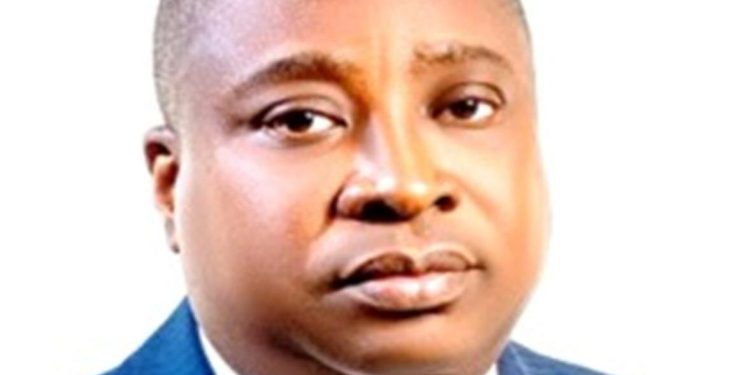The Bank of Sierra Leone celebrated its 60th anniversary last week. At a well-attended ceremony in celebration of the day, President Julius Maada Bio in his speech praised the leadership of the bank especially Dr Ibrahim L. Stevens, the Governor of the Bank of Sierra Leone.
Since Dr Stevens took over as governor from his predecessor Prof Kaifala Kallon, the bank has seen a resurgence of the high work ethics the bank is known for with staff members motivated to put their years of training and experience to the benefit of the nation’s financial sector.
President Bio praised the bank’s monetary policy committee for the excellent job they have been doing in dropping the inflation rate over a period of time.
Making a bold challenge the president called on Governor Stevens and the MPC to take inflation further down to low 20s by end of the year and to single digit in the medium term.
Meanwhile, the bank under the able leadership of Dr Ibrahim L. Stevens has been boosting economic activities across the country by regular deliberations and assessments of recent developments in the international and local financial markets.
The committee’s decisions are informed by the global economic developments, domestic economic developments (growth outlook), inflation, external sector developments, fiscal developments, monetary developments, and financial system stability.
While the banking system continues to be buoyant, the bank observed that income from government securities constituted the main portion of the banks’ earnings. Borrowing by the government poses a potentially severe risk to the sector, with such borrowing not favourable for banks to lend to the private sector.
In the first quarter of 2024 the bank observed that Reserve Money (RM) and Broad Money (M2) declined relative to the fourth quarter of 2023 necessitated by a decline and contraction in the Net Domestic Assets and Net Foreign Assets of the bank respectively. Although lending to the private sector expanded it was done in favour of commerce, finance, construction and business services sectors. Liquidity remains tight in the money market, with increasing 364-day T-bills yields. However, increases in government borrowing crowds out private sector lending, an action that could create a snowballing effect on debt service payment obligation by the government which will complicate budget execution.
The bank noted with cautious optimism that fiscal policy remains tight as the government seeks to pursue fiscal consolidation, disclosing that overall fiscal balance registered a deficit of NLe1.21 billion in 2024Q1 compared to a surplus of NLe0.39 billion in 2023Q4, driven mostly by debt service payments. Despite the government’s fiscal consolidation drive the increasing debt service payment is a challenge to reducing the fiscal deficit. The BSL is of the view that continued stability in the exchange rate coupled with declining inflation will prove essential in reducing uncertainties in budget execution.
During deliberations in the MPC, the BSL noted that the country’s trade deficit with the rest of the world widened to $142.4 million in 2024Q1 compared to $113.3 million in 2023Q4 while the bank’s gross foreign reserve was equivalent to 2.3 months of import cover in 2024Q1 compared with 2.7 months cover in 2023Q4, which decline resulted from debt service payments and payments for goods and services. There is confidence in the local currency bolstered by policy implementation by the bank and the smooth transition to the new Leone that limited speculative activities by market participants.
The real good news is that headline inflation continues to decrease, from 40.69 per cent in March 2024 to 38.06 in April and 35.84 in May 2024 mainly due to reductions in the prices of both food and non-food items of the consumer basket, stability of the exchange rate, increase domestic food production, decline in international food and energy prices and tightly controlled increase in the MPR. While all this is welcoming the bank underscored the upside risks to our inflation outlook, including crude oil production cuts, geopolitical tension and potential rises in global commodity prices.
Sierra Leone’s real GDP growth is estimated to rebound to 4.0 per cent in 2024 from a moderate growth of 3.4 per cent in 2023 driven mainly by increased activities in agriculture, the services sectors and mining. However, potential threats to the expected GDP growth remains geopolitical tension, rises in the international prices for food and energy and inadequate investments in critical productive sectors.
A resilient global economic activity continues to ease global inflation especially in advanced economies, emerging markets and developing economies which provide a favourable external environment for Sierra Leone in terms of trade and foreign direct investment flows. However, downside risks remain including but not limited to geopolitical tension, elevated debt burden, oil production cuts by OPEC and allies and increasing prices in the service sector.
The BSL continues ensuring that there is a continued easing of inflationary pressure on the economy. It will now need a better monitoring system to analyse how its policies are being transmitted to the public. Government for their part should cut down on huge borrowing as payments for such continues to drive inflation up, debt servicing charges notwithstanding.
The BSL under the leadership of Governor Stevens has been equal to the task and will continue to do so and bring inflation down to single digit in the medium term.








